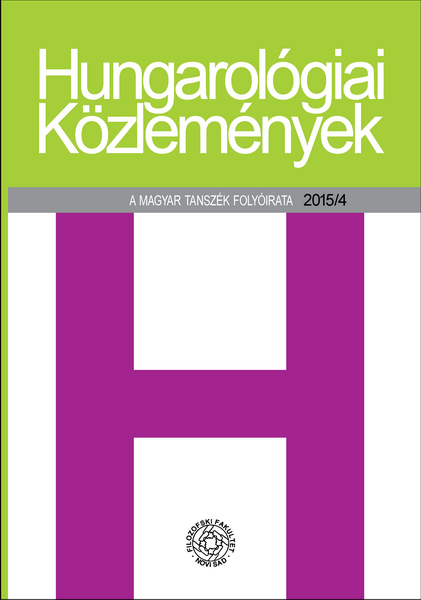Milyen fákon teremnek Mikszáth Kálmán regényei?
Defining Characteristics of Mikszáth’s Novels
Author(s): Balázs Nyilasy Subject(s): Hungarian Literature, Theory of Literature
Published by: Филозофски факултет, Универзитет у Новом Саду
Keywords: 19th-century Hungarian literature; models of narration; comic; viewpoint; social and psychological vision
Summary/Abstract: The paper is trying to find the place for the novels written by Kálmán Mikszáth, but the author by rejecting the preferences of the postmodernism of the Hungarian researchers at the turn of the millenium, looks for new directions in his research. He thinks of the colourful, vital, comic and humorous character of the Mikszáth novels as the basis of their understanding, and he presents the territories, literary aspects preceeding realism, the communities based on natural humanity, spheres of protected microcosm with the same intensity as he emphasises the spontanity of the narration and the writer’s deep social and psychological disillusionment, his vision of theatrelike construction of the world and the importance of the narrator’s irony, the mode of his speech, the significance of the method of changing viewpoints and his particular uniqueness. In view of these examinations, Mikszáth, offering the reader a fellowship of lenient judgement and evaluation of human affairs turned out if not exactly postmodern, nevertheless very contemporary and we can claim that even when we compare him to his European fellow writers (Fielding, Smollett, Dickens, Gogol, and the Bildungsroman, the French, German and English realism), he undisputably created a sovereign novelistic form, and used a uniquely variable mode of narration.
Journal: Hungarológiai Közlemények
- Issue Year: 16/2015
- Issue No: 4
- Page Range: 1-13
- Page Count: 13
- Language: Hungarian

